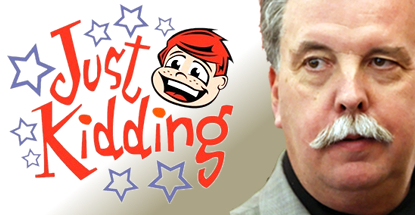Pennsylvania’s newest online gambling bill is poker-only, confusing supporters who believed HB 649 sponsor Rep. John Payne’s use of the phrase “internet gaming” meant the bill would allow operators to offer online casino games.
The full text of HB 649 has since been published (read it here) and, while it also makes repeated mention of “internet gaming,” the bill’s definition of “authorized game” is limited to “any interactive poker game approved by the [Pennsylvania Gaming Control Board].”
In announcing his bill on Wednesday, Payne had cited a study that projected the state’s regulated online gambling market could generate revenue of $120m in its first year. Suffice it to say, Sheldon Adelson will win a PokerStars Spin & Go before a poker-only intrastate market earns that sum in one year. New Jersey’s regulated market produced only $29.1m in online poker revenue in its first year, and Pennsylvania’s population is nowhere near 4x the size of New Jersey’s.
Only the state’s existing gaming licensees are eligible to obtain online licenses, but the bill contains no specific ‘bad actor’ provisions regarding these licensees’ technology partners aka ‘significant vendors.’ Suitability will be judged on whether a significant vendor’s “prior activities, reputation, habits and associations .. create or enhance the dangers of unsuitable, unfair or illegal practices, methods and activities in the conduct of interactive gaming.”
As previously revealed, online gaming licenses will cost $5m for existing gaming licensees and $1m for significant vendors. Operators will ante up 14% of their gross gaming revenue, payable on a weekly basis. Players would have to be 21 years of age or older.
Other details include a willingness to enter into agreements with other intrastate markets for the purpose of sharing liquidity. Absent those agreements, attempts to wager with a Pennsylvania-licensed operator from outside the state will result in the forfeiture of any winnings.
The bill also bars internet cafés from making computer equipment available “principally for the purpose of accessing interactive games.” Individuals who get caught offering unauthorized online services will face fines of $75k to $150k for a first offense, rising to $300k for a second offense. Licensed manufacturers and suppliers face fines of up to $300k for a first offense, rising to $600k. Licensed gaming entities face fines from $600k to $1.2m.
